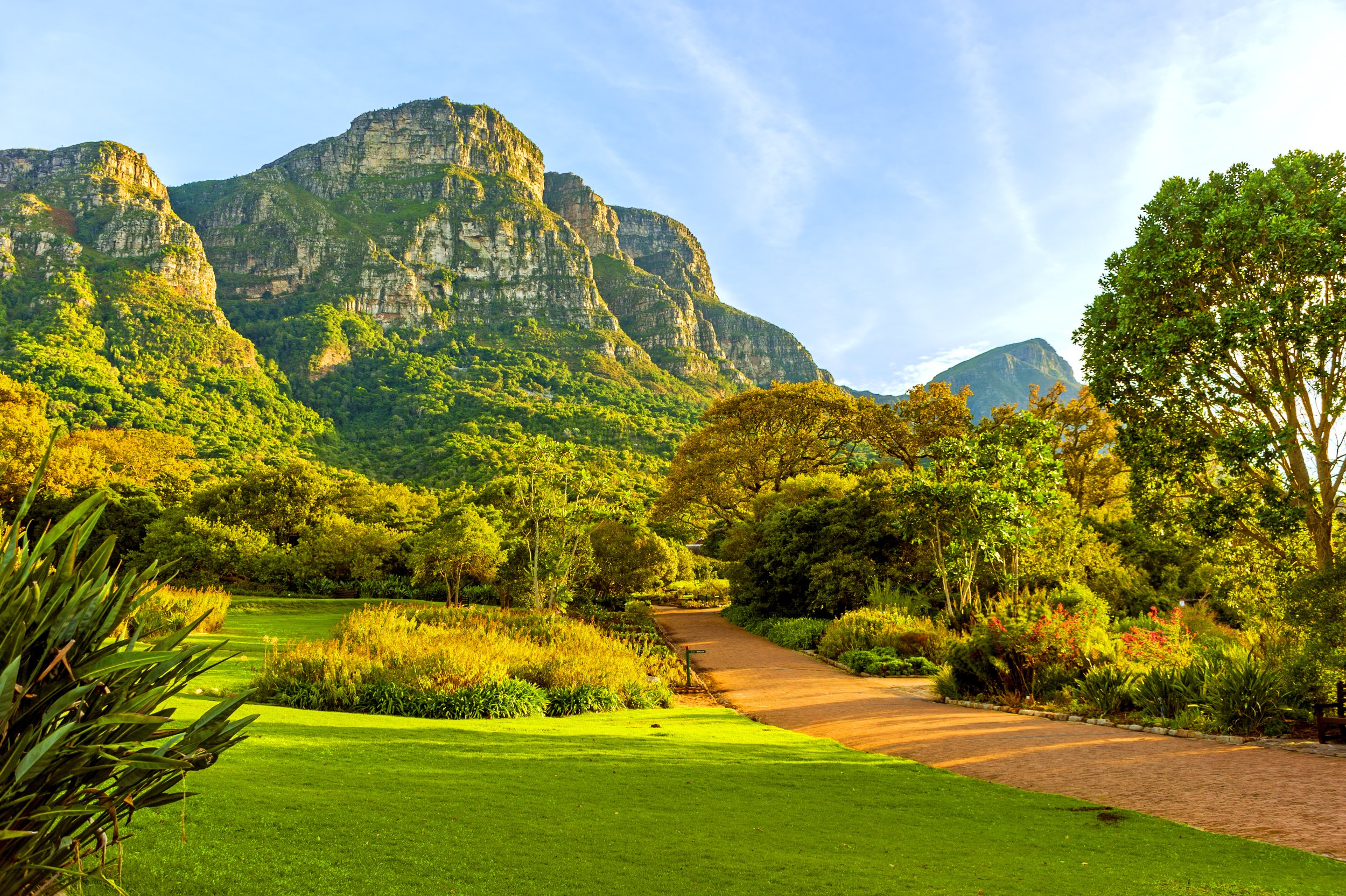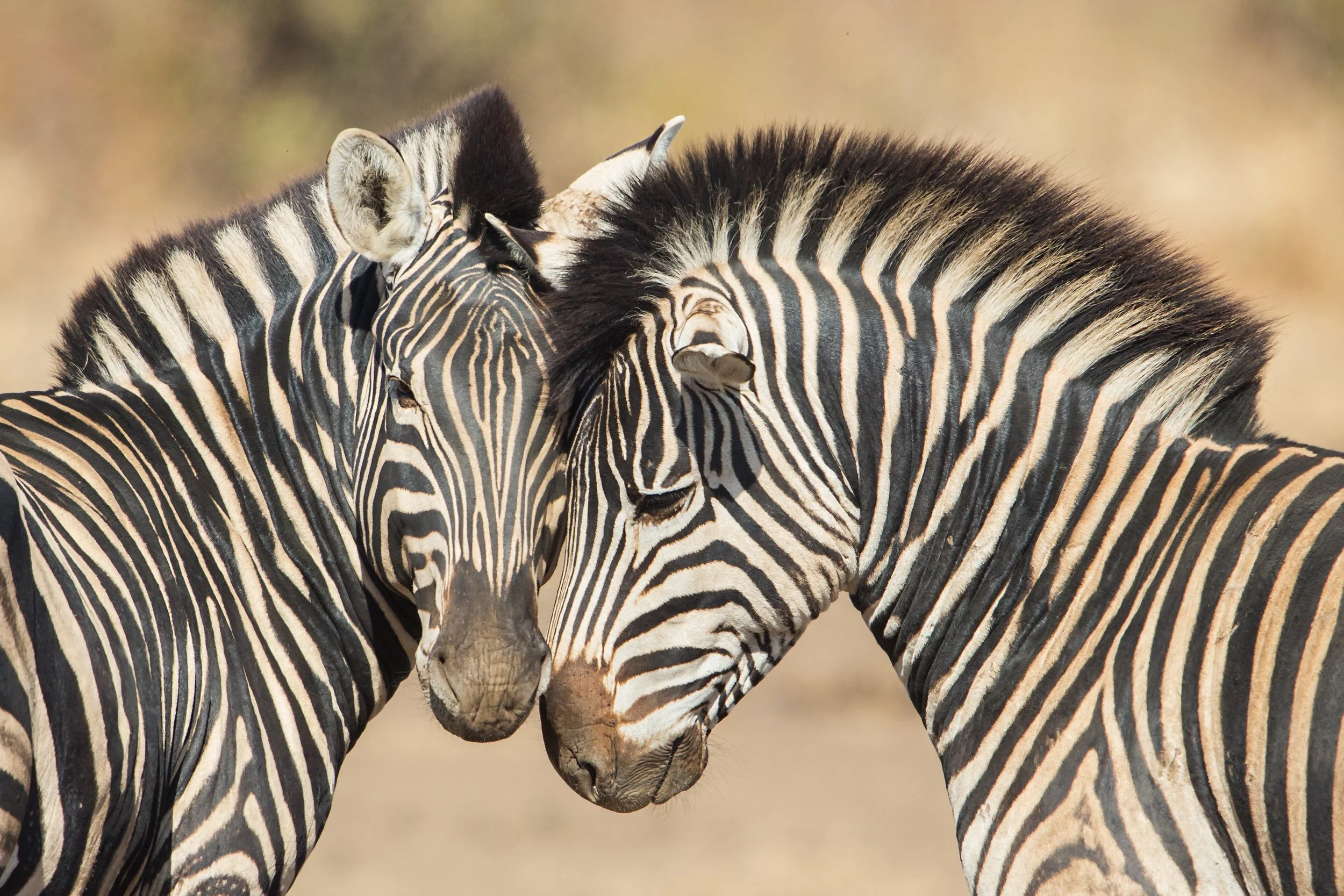Why is South Africa a Sustainable Destination?
Written by Nadine Kilala
It is a cliché to minimise South Africa’s tourism scene to just the Big Five. South Africa is the total package, so why miss out on exploring the exhilarating mix of unique cultures, histories, and nature? The country has something to offer for everyone, whether the dramatic coastline or the alluring vineyards - South Africa has got it all.
With the diverse and vibrant mix of tourism itinerary options, it has become increasingly important to manage tourism sustainably. South Africa aims to encourage inclusivity and purposeful transformation by mobilising sustainable tourism practices. These sustainable tourism practices are oriented to address pre-existing crevasses in managing the socio-economic, cultural and environmental impacts of tourism.
Viatu uses a set of guidelines set by the Global Sustainable Tourism Council (GSTC) to measure and evaluate the sustainability of a tourism destination. The GSTC criteria aid in critically assessing sustainability through gauging the extent of sustainable management, socio-economic sustainability, cultural sustainability, and environmental sustainability. Collectively, these indicators serve to provide rounded measures of sustainability within a destination area.
Through our meticulous application of the 171 GSTC sustainable destination indictors, South Africa has racked a score of 88%. As demonstrated below, South Africa shows strong performance in all 4 sustainability themes:
Sustainable Management: 86%
Socio-economic Sustainability: 94%
Cultural Sustainability: 92%
Environmental Sustainability: 84%
Let us take a lensed look at how South Africa is emerging as a significant player in the sustainable tourism scape in Africa.
Sustainable Management
South Africa has branded its sustainable tourism approach as responsible tourism. Responsible tourism is centred on creating a tourism industry that has minimised detrimental cultural, social, and environmental impacts while driving inclusive socio-economic development. In 1996, South Africa was the first country to incorporate responsible tourism in its national policy framework. South Africa’s policy on responsible tourism revolutionised the tourism industry, as it was used as a template for the Global Responsible Tourism Awards - talk about impact!
Responsible tourism is a vital feature of the South African tourism experience. The country aims to fully embrace the responsible tourism philosophy that focuses on “making better places for people to live in and better places for people to visit”. The implementation of responsible tourism as a key management strategy is aimed to produce quality and longevity in tourism experiences and local livelihoods in South Africa.
Concurrent with responsible tourism, South Africa is one of the pioneering countries incorporating fair trade principles and certifications into its tourism products. The Fair Trade Tourism organisation in southern Africa promotes the implementation of fair wages and working conditions alongside an equitable distribution of tourism benefits to communities and the environment.
South Africa hosts an array of tourism awards that recognise excellence and impact. The various tourism awards aid to stimulate healthy competition and innovation within the tourism industry. To name a few, the tourism award scene in South Africa includes the Lilizela Awards and Africa’s Responsible Tourism Award. The Lilizela Awards is a prestigious award that is organised by South African Tourism; these awards recognise tourism stakeholders that deliver high-quality tourism products and services. Africa’s Responsible Tourism Award is organised by ICRT South Africa, with support from World Travel Market Africa. This regional award celebrates and rewards the key players establishing the African continent as a world-class tourism destination.
The achievement of responsible tourism requires meaningful collaborative efforts that include the participation of local stakeholders in decision-making. Local community engagement and empowerment are essential components in establishing responsible tourism. South Africa arranges annual conferences and capacity building workshops on World Tourism Day. These annual engagements bring together all the key tourism stakeholders – such as funding institutions, the government, NGOs, and the private sector – to discuss various tourism themes that pertain to sustainable management, energy efficiency, industry greening, and community development.
The National Tourism Sector Strategy 2016 - 2026 also reiterates the importance of strong stakeholder relationships in effecting responsible tourism. The strategy has set sustainable development guidelines, standards, and regulations to monitor and organise the various stakeholders’ relations to navigate progress on key performance areas of the South African tourism industry. This national strategy allows stakeholders to achieve common goals in actualising responsible tourism.
On a national level, South Africa has established the Department of Tourism to develop a tourism industry that has inclusive and sustainable outcomes. The department has set strategic plans orientated to promote South Africa as a sustainable tourism destination. This department works alongside the South African Tourism Board and the 9 respective provincial tourism organisations to maximise domestic tourism opportunities. These tourism entities collaborate in conducting research, implementing national tourism policies, and creating essential knowledge bases on the progress of the South African tourism industry. The developed knowledge is distributed to the private sector to stimulate investment, innovation, and socio-economic development.
Socio-economic Sustainability
The tourism sector in South Africa accounts for an estimated 4.5% of total employment. This industry is a lifeline to the South African economy, as it contributes to the creation and growth of jobs, tax revenue, disposable incomes, development of infrastructure, and social inclusion. The shift towards sustainable tourism offers more opportunities, competitiveness, and profitability in the South African tourism industry. With the growing economic emphasis on sustainable tourism, South Africa looks to tourism as a powerful economic generator for transformational development.
In the context of transformation, South Africa has historically grappled with unemployment, income inequality, and poverty. The tourism sector is recognised as a wide-reaching industry that can uplift and increase the social mobility of marginalised and disadvantaged communities in South Africa. Tourism is a flexible sector that can employ people with various skill sets. For example, the Southern African Tourism Services Association, SATSA, is a tourism credibility association that offers training and incubation programmes aimed at equipping tourism stakeholders with cutting-edge skills and knowledge centred on expanding the benefits of the tourism industry. The increased access to training programs has been crucial in spearheading human capital development in the tourism industry. In turn, this investment in up-skilling tourism stakeholders is directed to yield positive socio-economic benefits.
South Africa has released a National Responsible Tourism Development Guideline report that aids to indicate a pathway in attaining wide-scale sustainable tourism. This guideline elaborates on the key economic development responsibilities of the tourism sector. South Africa aims to diffuse the benefits of tourism through diversification. The paper identifies that the diversification of tourism will increase accessibility for domestic persons to participate in the local and regional tourism base. Diversification is also a key agent in enabling increased economic linkages that will dampen the impact of economic shocks within the South African economy. The increased participation by local communities is set to be a catalyst for increased employment and economic growth throughout the South African economy.
Cultural Sustainability
The rainbow nation is a metaphor for the diversity of people and culture in South Africa. South Africa is a plural society that is made up of a collection of distinct cultures in different regions. South African people have a deep sense of pride in their rich and unique cultural heritage because their cultures are integral to their identity. South Africa is home to five cultural UNESCO World Heritage Sites in tandem with the diversity of rich cultures. The protection of culture is constitutionally protected as it is embedded in the Bill of Rights. The constitution prohibits any form of discrimination and exploitation of any culture. The high respect for culture has translated into how cultural tourism is undertaken. Cultural tourism is required to operate within the constitutional mandate that promotes the freedom and equity of a multicultural landscape within South Africa.
The cultural tourism landscape in South Africa gives locals leverage to freely share and celebrate their cultural heritage through storytelling, cuisine, dance, art and crafts, to music. Tourism provides a platform for creating sustainable income for the preservation, representation, and documentation of the array of cultures. The National Responsible Tourism Development Guideline has also prioritised the mainstreaming of cultural tourism within the South Africa tourism scape.
Environmental Sustainability
Historically, the South African tourism industry has placed immense pressure on the environment, as the sector consumed large amounts of water, energy, and food resources. With South Africa’s current commitments to the COP26 and the Sustainable Development 2030 Agenda, the country has pledged to protect and implement green practices in the tourism sector to promote energy efficiency, water conservation, and waste reduction. South Africa acknowledges that its natural assets are essential as they play a crucial role in maintaining biodiversity and the development of rural communities.
South Africa is home to pristine ecological sites and wildlife conservancies. According to Statistics South Africa, 9.2% of the total land area is protected. These protected areas are established to conserve the ecological integrity of national parks, wildlife sanctuaries, and natural reserves. For instance, national parks in South Africa constitute 37.4% of the protected areas. These national parks significantly protect 4 key biomes: desert, Nama-Karoo, Savanna, and Succulent Karoo. The protected sites also include four valuable natural UNESCO World Heritage Sites. South Africa undoubtedly boasts natural assets that hold high value to humanity; therefore, the country is committed to environmental conservation of its natural sites.
The South African marine environment boasts breathtaking spectacles such as the biodiverse Kelp forests and the deep sea muds. To manage the sustainability of these rich marine ecosystems, South Africa has set up a network of Marine Protected Areas (MPAs) along its coastline. Currently, the country has 41 MPAs that protect 5.4% of its oceans. Each MPA is custom designed to protect a specific type of marine habitat. This MPA network aims to safeguard oceanic resources to promote increased biodiversity, climate resilience, food security, and economic development.
Conservation and management efforts of South African national parks and protected areas are entrusted to various environmental agencies that include the South African National Parks, KZNWildlife, and CapeNature. These agencies are critical in promoting responsible tourism development within environmentally sensitive areas. These conservation entities have been a vital component in ecological systems’ restoration and protection efforts through their application of integrated environmental management approaches. The application of an integrated management strategy is centred on creating constructive community engagements and relationships with neighbouring rural communities. Collaboration between these environmental agencies and local communities has been a critical factor that has enabled South Africa to gain ground in its environmental sustainability portfolio.
Tourism stats
There were only 8 tourists per km2 in 2019.
The total area of protected land in South Africa is larger than Denmark.
Between 2015 to 2020 South Africa’s protected areas increased by 11% to a total of 14.2%.
According to the Good Country Index, South Africa’s ranked 14th in its global contribution to International Peace and Security.
South Africa accounts for 2% of the global land surface area while it is home to 10% of global plant species and 15% of the world’s marine species.
South Africa ranks 9th in the African region’s Sustainable Development Goals Index.
South Africa holds great potential in cementing its place as a sustainable tourism destination. The country still faces challenges in achieving sustainable development within the tourism sector; however, South Africa shows resilience and unwavering commitment to provide sustainable tourism experiences and better South African futures. To understand how Viatu chooses sustainable destinations read our full article here.
Are you looking to experience the sustainability perks that South Africa has to offer? Visit Viatu to plan your sustainable getaway.












